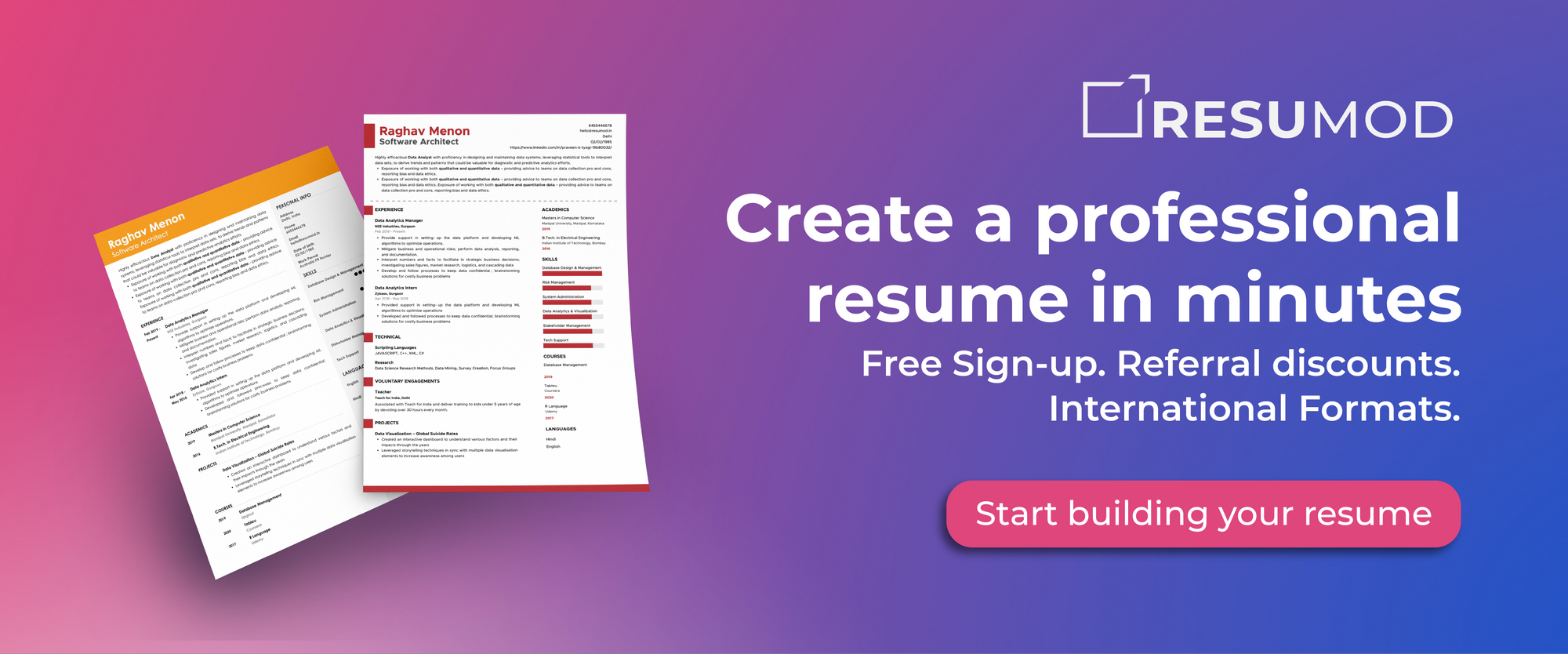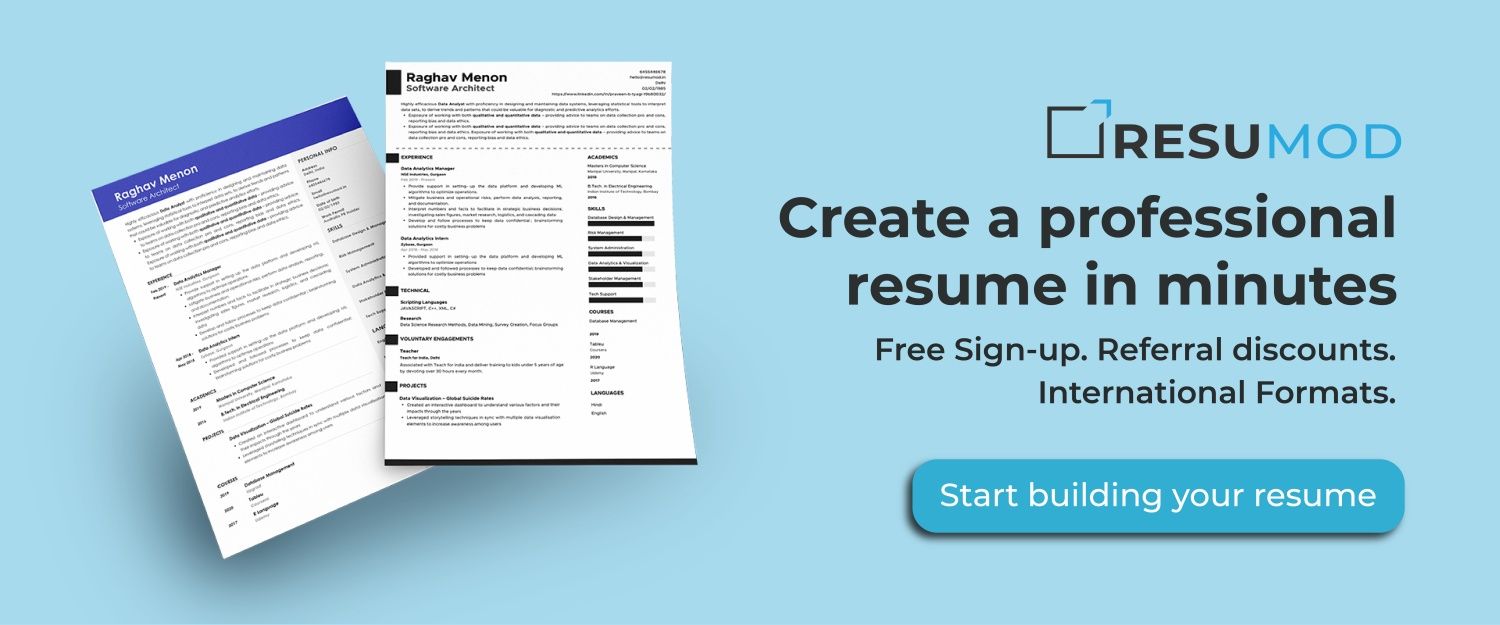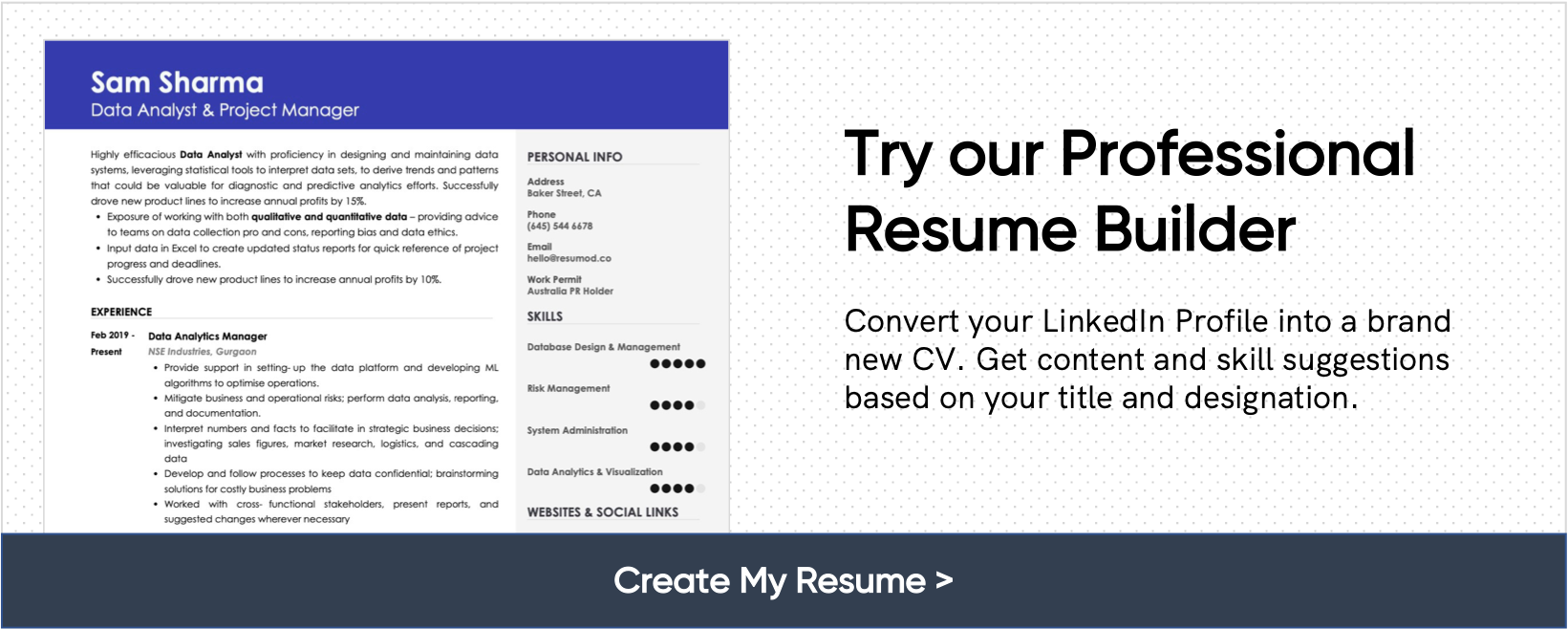A Guide on Hard Skills: How To Use Them On Your Resume
To land your dream job it is essential to have a well-written resume. Apart from highlighting your work experience and education, it is crucial to add essential hard skills.
87% of employers have difficulty finding the right employees and it’s all because of skill gaps.
To land your dream job it is essential to have a well-written resume. Apart from highlighting your work experience and education, it is crucial to add essential hard skills. These skills are specific, measurable abilities that are typically attained through hands-on experience, education, and training.
Understand the importance of hard skills and effectively demonstrate them on your resume, as it’ll help you stand out amongst candidates applying for the job. It’s crucial to learn what hard skills are and how you can use them on your resume.
In this blog post:
- What are hard skills?
- In-demand hard skills
- How to develop hard skills?
- Using hard skills at work
- Tips for including hard skills on your resume
- Top-rated resumes on resumod with hard skills
What Are Hard Skills?
Hard skills are aptitudes that you acquire through education, training, and experience and are frequently closely related to a particular industry or career. These abilities can also be developed informally by engaging in activities or interests that are connected to them.
Soft skills, or interpersonal skills, are different from hard talents. These are broader characteristics, including problem-solving and communication, that are relevant to many different types of work. Hard skills are crucial since some positions may mandate them from companies.
Examining the most frequently requested hard skills listed in job advertisements might help you build the essential competencies for your profession as you get ready to work in the career path of your choice. Gaining these abilities can help you get ready.
In-Demand Hard Skills
So which hard skills are the most essential?
The answers change all the time and are very specific to the job you’re applying for, but as of May 2022, as per a study, these 10 hard skills as the most commonly mentioned across all their job descriptions:
- Customer relationship management (CRM) software
- Management skills
- Sales experience
- Recruiting
- Software development
- Software engineering
- Computer science
- Basic life support
- Budget management
A vital subset of hard skills are technical skills, which are hard skills that are needed to use a specific piece of technology or technique. According to a site from the U.S., these are currently the most in-demand technical skills across all employer job postings:
- Microsoft Office software
- SQL
- Python
- Oracle Java
- Amazon Web Services (AWS) software
- JavaScript
- SAP software
- Microsoft Azure software
- Microsoft Access
- Linux
- HTML
- Atlassian JIRA
If you do not have any of these in-demand skills, it doesn’t mean you’re destined for permanent unemployment. Except for Microsoft Word, hard skills depend on the career or job function you choose, so the most in-demand are going to be either very broad like Microsoft Office, or reflective of the most in-demand jobs or careers at the time like software development or healthcare now.
How To Develop Hard Skills?
Do you want to add new hard skills or upgrade skills you already have? There are numerous ways to develop hard skills, including:
- Certification: Whether it’s online or in-person, sign up for a course that can help you earn a certification in the required hard skills. Websites like edX, Udemy, and Coursera offer multiple courses on a range of subjects, where you complete the course and can add it to your resume.
- Follow a new hobby: If you’re preparing to enter a new field and need to learn some hard skills, consider following a hobby relevant to your field of choice. For example, if you are vying for a position as a social media marketer, then you could pick up photography or start learning about video editing in your free time.
- Volunteering: Indulge in volunteer work as it is a good way to grow your skill set. Look up volunteer opportunities and see if any of them will allow you to develop your hard skills.
- Take challenges at work: To develop your hard skills in the workplace, be sure to jump on any professional development opportunities offered by your employer. Accept assignments that need you to learn how to use new tools or software.
Using Hard Skills At Work
A few ways you can incorporate hard skills into your day-to-day work duties:
- Editing emails and other online correspondence takes time. Editing is a challenging talent that many businesses would rather have their staff members possess. Spend a few minutes editing an email or other correspondence for correct grammar, sentence structure, and spelling before sending it.
- When it is feasible, use the software on a computer. Even though the majority of jobs require some degree of computer proficiency, you can go above and above by becoming knowledgeable about other software applications that are utilized in your workplace.
- Seek out opportunities to participate. If you have a hard skill that you don't use daily, you can think about volunteering to assist in a department where your hard skills are needed. For instance, you may volunteer to assist your company's weekly hourly social media marketing efforts.
Tips For Including Hard Skills On Your Resume
Some tips to help you feature hard skills on your resume to show employers your qualifications for a position:
- Highlight your top skills: Rather than listing your hard skills, choose the top skills that are relevant to the position or industry. Highlighting them can help you keep your resume concise.
- Match your skills to the job: Review the job description so you know what an employer is seeking and include them on your resume. Customize your resume to show employers how your hard skills align with the position.
- Show the results of your skills: Use facts and statistics to show the results of your skills and experience on your resume. Providing quantifiable data can help you show caliber for the new position.
Top Rated Resumes on Resumod with Hard Skills
Resume of Closing Manager

Check the full resume of closing manager in text format here.
Resume of Event Coordinator

Check the full resume of event coordinator in text format here.
Resume of IT Business Support Specialist

Check the full resume of event coordinator in text format here.
Resume of IT Recruiting Coordinator

Check the full resume of IT recruiting coordinator in text format here.
Resume of Library Assistant

Check the full resume of library assistant in text format here.
Resume of Lab Technician

Check the full resume of lab technician in text format here.
Resume of Graphic Illustrator

Check the full resume of graphic illustrator in text format here.
Resume of Junior Cloud Engineer

Check the full resume of junior cloud engineer in text format here.
Resume of Logistics Coordinator

Check the full resume of logistics coordinator in text format here.
Resume of KYC Analyst

Check the full resume of KYC analyst in text format here.
The bottom line is to boost your chance of landing your dream job and ensure you put a spotlight on your relevant skills and qualifications. Master the hard skills required for the job you're after and keep your resume short and sweet to grab the attention of the employer.
Happy Job Hunting!



